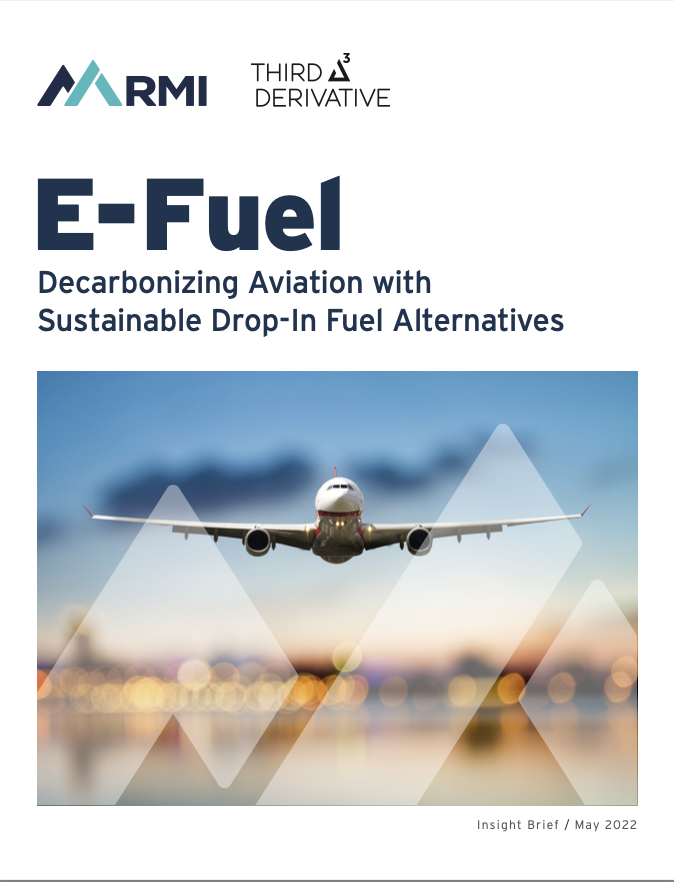
DOWNLOAD REPORT BELOW:
Aviation is the backbone of today’s globalized economy, but it’s also a major contributor to climate change. Burning jet fuel accounts for 2%–3% of global greenhouse gas emissions today, and consumption is expected to more than double by 2050 as the industry continues to expand.
Efforts are under way to find cleaner technologies for powering aircraft, but the sector is proving stubbornly expensive and difficult to decarbonize. Specifically for medium- and long-haul aviation (which accounts for two-thirds of aviation emissions), there are challenges with potential solutions, such as:
-
Batteries, hydrogen, and ammonia have low energy densities that are incompatible with aviation’s weight and space constraints and would require trillions of dollars of investment to build new airplanes, engines, and infrastructure that can work with these fuel types.
-
Hydro processed esters and fatty acids (HEFA) biofuels are sourced from waste oils and fats that exist in short supply.
-
Cellulosic and algae biofuels incur high costs through the growth, collection, and transport of biomass.
-
Electrofuels (e-fuels) are too costly because of significant electricity usage.
Although innovation will drive down the cost of all these fuels, only “drop-in” replacements that work with existing airplanes — biofuels and e-fuels — can scale up to decarbonize the industry in accordance with pledges by almost 300 airlines to achieve net-zero carbon emissions by 2050.
In our latest insight brief, explore Third Derivative's technoeconomic review of e-fuels, and a proposed pathway for achieving <$4/gallon, which can be cost competitive with conventional fuels.

